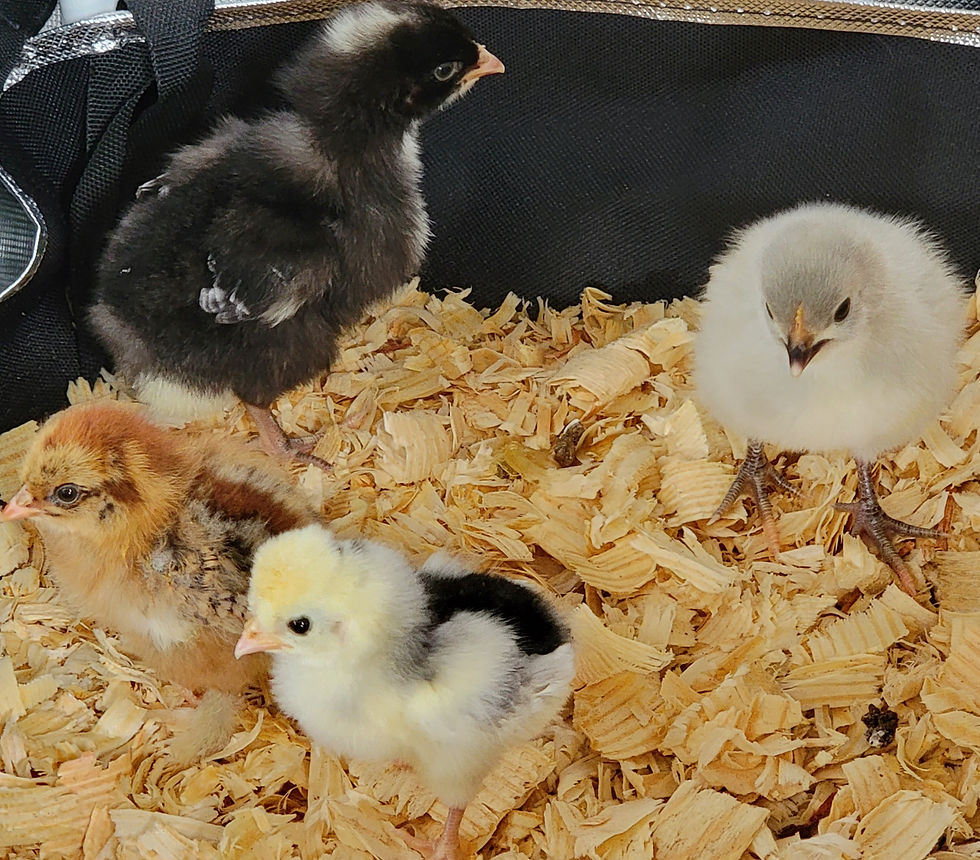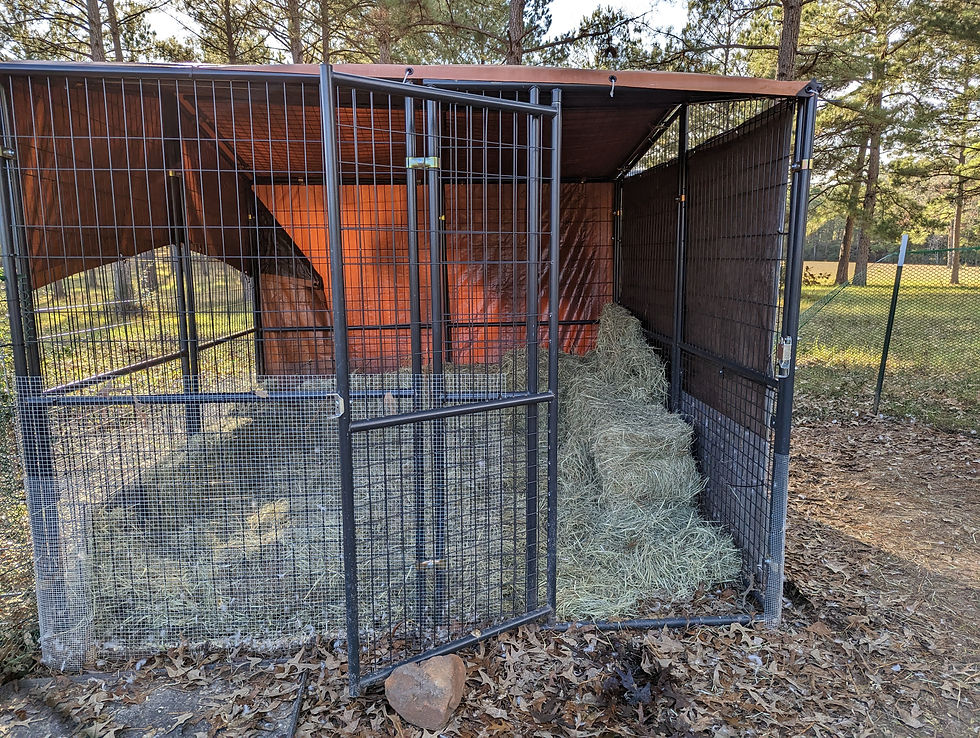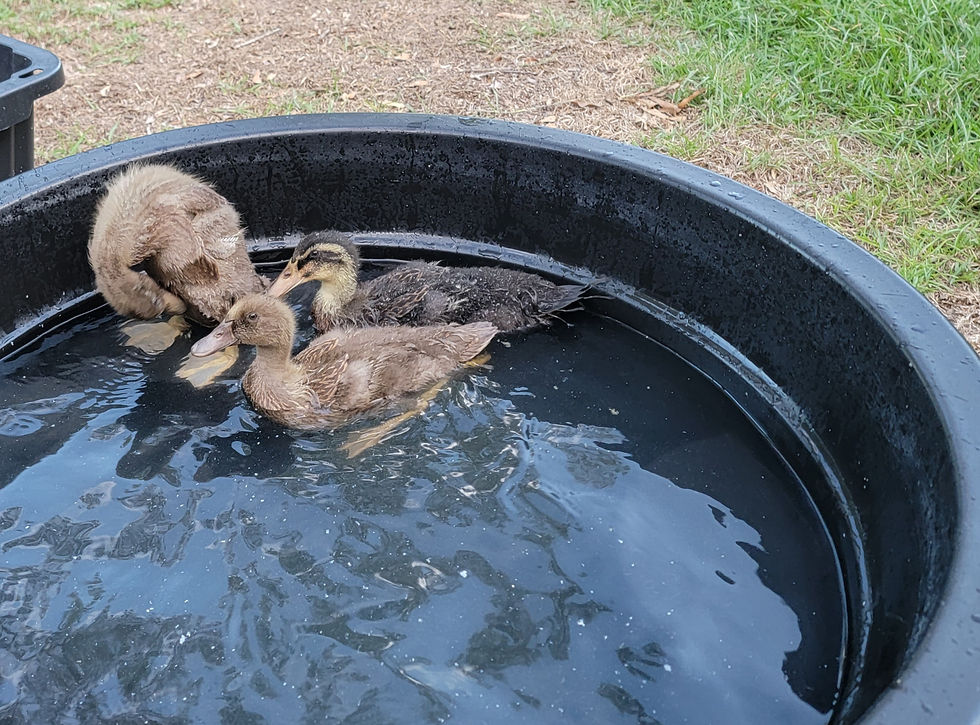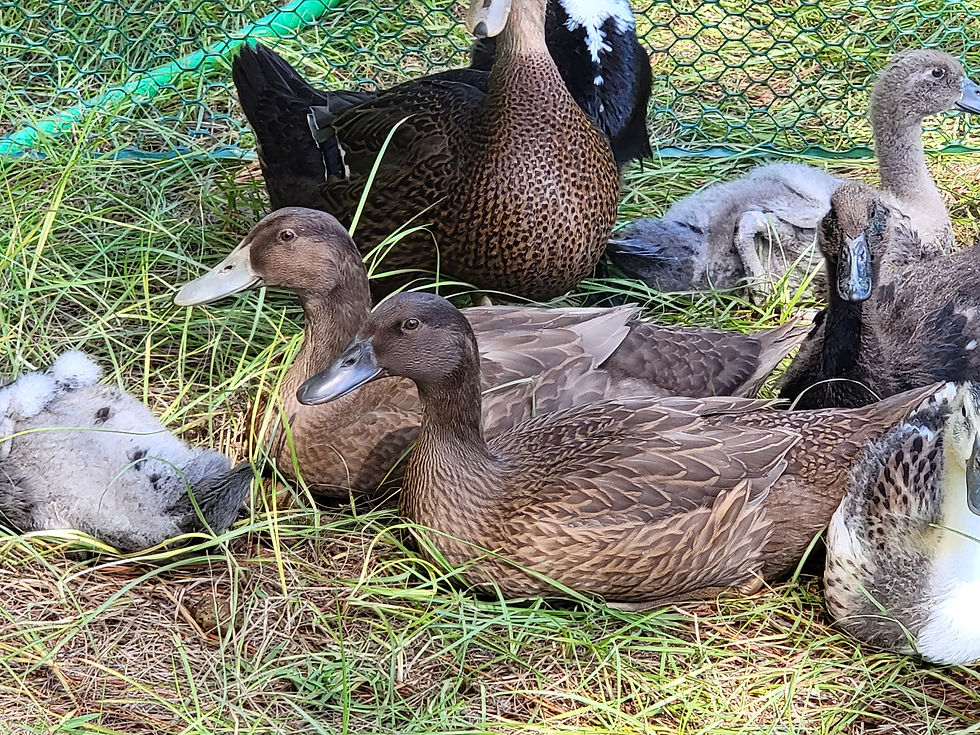Does your heart skip a beat when you view those happy chickens and ducks of Instagram?
Maybe you're just tired of the skyrocketing cost of eggs and thinking of raising your own flock to cut out the middle man?
Or maybe are you tired of buying factory-farmed poultry and want to raise your own meat?
Whatever your reason (and there's so many!), we wanted to help wrangle up some important details to consider before running off to your local feed store and picking up some baby chicks!
Why do you want them?
The primary purpose for keeping chickens or ducks will greatly impact which species you choose.
Chickens are great for egg and meat production laying an average of 6 eggs per week. If eggs are your main goal, then chickens could be a good choice. Chickens are also fantastic for meat production maturing in just 8-10 weeks.
Ducks can also be great for eggs despite what some may think. While less commonly used as a commercially sold product, duck eggs are just as tasty as chicken eggs and are known as "the baker's secret." Ducks lay fewer eggs than chickens averaging 3-4 eggs per week, but they make up for it by laying eggs deeper into the winter months when chickens generally stop laying as well as laying eggs for several more years than chickens. As meat birds, they grow faster than chickens and are generally larger, which results in a greater yield of meat.
Regardless of whether you go with chickens or ducks, be sure to research the advantages of each breed you are thinking of getting. Some breeds are great for eggs, some for meat, and some are great hybrids providing a regular supply of eggs while also growing large enough to be good for meat.

How much space do you have?
The amount of space you have available is another important factor to consider when deciding between chickens or ducks.
Chickens need a coop for shelter and a fenced run to exercise and forage in. The coop needs to be secure to protect the birds from predators and the fenced run should be large enough for the chickens to move around comfortably. In total chickens need at least 4 sq ft of space in their coop and 10 sq ft of outdoor space. Chickens also love to roost - so having roosting bars, swings, and other things they can stand on are very important!

On the other hand, ducks don't need to roost but they do need a pond or pool to swim in along with shelter and a yard. In warmer climates, their shelter can be much less complex than a chicken coop but ventilation to keep their area from getting too damp is key! Our duck setup is very similar to our chicken setup, using the same type of cage surrounding our chicken coop and covering it with tarps to help keep wind and rain out. Ducks require at least 4 square feet per duck and a minimum of 24 square feet of shelter space and 10 sq ft of outdoor space per duck.

What’s the weather like?
Climate is another important factor to consider when deciding between chickens or ducks. While both species can handle a wide range of temperatures, ducks are better suited to cold and/or damp and wet climates, as they have waterproof feathers that keep them dry and warm. Chickens, on the other hand, are hardier in hot temperatures.
At Green Duck Pines, we chose to get ducks along with chickens as the climate is very wet and we have an ample water supply. It will be extra important for us though to provide additional water as well as ice water on particularly hot days to ensure the ducks do not overheat. Providing ample shade for them to avoid the harsh sun is also crucial when keeping ducks in the Texas heat. There’s no hard rule in what breeds can live where but is important to keep in mind when making a decision to get chickens or ducks as it is more difficult keeping your flock healthy when they are not well adapted to your environment.
How much work do you want to put in daily?
The amount of maintenance required to keep chickens or ducks is another important factor to consider. Ducks are messier than chickens and require daily cleaning of their pool and water bowls as they get copious amounts of mud in their water. This can be time-consuming, especially if you have a lot of ducks. Along with daily maintenance, duck shelters need to be cleaned regularly. We use hay in the duck shelter for warmth and also ease in cleaning. We regularly add more hay throughout the week and then clean it all out at once a week and start over, putting the old hay in the compost pile for use in the garden later. Chickens also require daily care but that is limited to cleaning the feed and water containers. Both chickens and ducks need to be fed and watered daily as well.
Routine maintenance is also important to consider. Ducks will need their shelter cleaned out weekly, but also need a more intense cleaning seasonally. Chickens also need their coops cleaned and sanitized in Spring and Fall as well as before you add any additional birds to the flock, to prevent disease.

How much does it cost to start?
The initial cost of starting a chicken or duck flock can vary greatly but are very similar.
Chickens are generally less expensive to purchase, but you will need to purchase a coop, fencing, feeders, and waterers. Ducks are a bit more expensive to purchase and need a similar setup as chickens although their housing can be less significant and thus cheaper. Keep in mind less significant does not mean less secure! Our duck cage has a latching door and with 1/4" hardware cloth covering the lower half to prevent raccoons and other pests from getting or reaching in. Ducks will also need a pool or pond to swim in. It needs to be deep enough for them to submerge themselves and you should have multiple if you have a larger flock. We use a simple baby pool you can get from Walmart or Home Depot until we can expand them to a larger pond. These are an affordable option and the ducks can easily get in and out of them without a ramp.
In Summary
Just know any way you do it, the time to recoup any cost from the eggs or meat you get from your flock is going to be long. It's definitely not cheaper raising chickens or ducks than buying your eggs at the supermarket, but there are dozens of other reasons to raise your own flock of chickens or ducks.
Both chickens and ducks can be great additions and are known for their friendly personalities. Watch out for roosters though! Personally, I am much fonder of ducks. Drakes are much less aggressive and who doesn’t love a wiggling duck butt! Which birds are your best fit? Let your heart guide you, but make sure you have ample space, the right weather, and enough time and love!


Comments